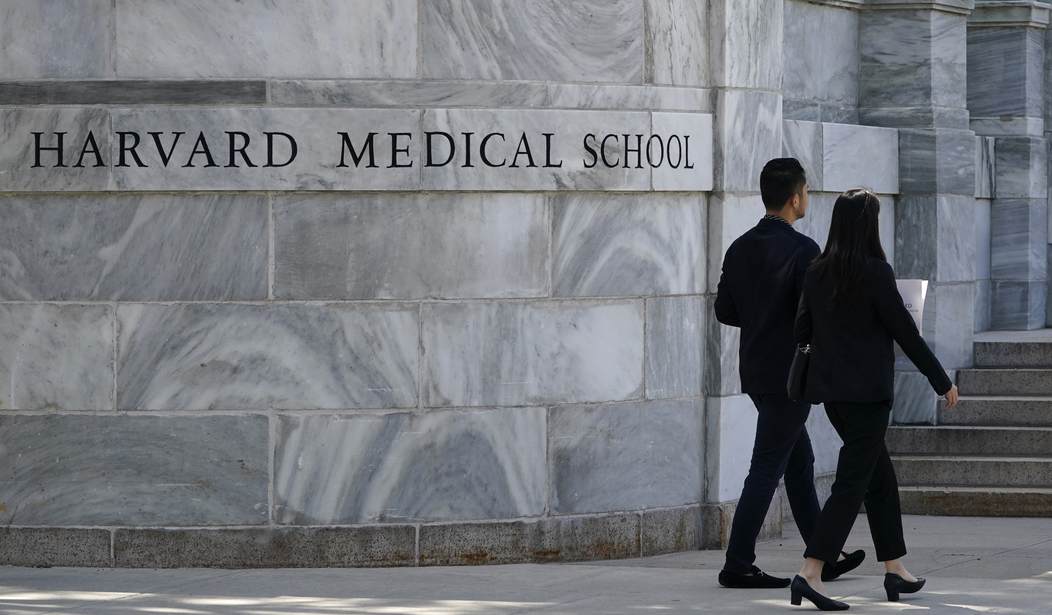When Kent Dorfman was admitted to the Delta Tau Chi fraternity in the 1978 National Lampoon film Animal House, he was given the name “Flounder.” Nobody really seemed to like him very much and his personality and appearance were a fry cry from the typical frat boys that made up the fraternity. But he was a “legacy” pledge because his brother had been a member before him. That scenario was based on reality since the practice continues at many fraternities and sororities to this day. Perhaps less well-known is the fact that the same system can be used to gain admission to colleges and universities, to begin with.
Now that race-based “affirmative action” in college admissions has been dumped, more attention is being paid to this long-established tradition at American schools. Should sharing the same surname as someone who was previously admitted to a college or university grant someone a leg up over other applicants? Should it even be considered at all? The Biden administration has come out against the practice, claiming that it primarily benefits “wealthy white families.” And in a rare turn of events, they may have gotten this position correct, though not for the right reasons. At Harvard’s newspaper, The Crimson, they are taking a fresh look at the question as well.
Legacy admissions are under renewed scrutiny following the Supreme Court’s Thursday decision to dramatically curtail the use of race in college admissions.
Though the Supreme Court is divided along ideological lines on the use of race as a factor in admissions, opposing opinions from conservative Justice Neil M. Gorsuch and Justice Sonia M. Sotomayor, the Court’s most senior liberal, found common ground in criticizing Harvard’s practice of giving preference to ALDC applicants — meaning athletes, legacies, primary relatives of donors, and children of faculty or staff — in admissions.
In oral arguments last October, several conservative justices had floated removing legacy preferences as a race-neutral alternative for Harvard’s admissions process.
The Supreme Court’s decision in Students for Fair Admission v Harvard was a victory in the war on merit, but that was only one of many battles to come. It served as a hopeful step in eliminating one form of racism (that used to be called “reverse racism”) but those tendencies still flow strongly in the bloodstream of Democrats and progressives.
Last year, Democrats introduced a bill to ban federal aid to colleges and universities that engage in legacy admissions. But it included a provision that would “allow the secretary of Education to waive the prohibition on legacy-based admission for an award year to Historically Black Colleges and Universities (HBCUs) and schools that serve tribal communities or other minorities.”
The message from the Democrats was loud and clear. Legacy admissions are okay as long as they don’t benefit white or Asian families. Those admissions must be banned.
But with all of that said, assuming we can remove the knee-jerk liberal impulse to install racial guardrails, there is no excuse for turning a blind eye to the legacy admissions question now that the Harvard ruling has been handed down. This still comes down to a question of merit and equal treatment regardless of race, wealth, or social status. Much like the situation with Kent Dorfman, if your child has worked hard and earned the top grades in primary school, there is no reason for them to be passed over in favor of someone with a less impressive record based solely on their surname or how much money their parents donated to the university.
Of course, legacy admissions are only one of the many problems in our higher education system in the current era. There may be a legislative solution to issues involving racial discrimination and bias in admissions, but it will be far more challenging to address the blatant censorship and liberal bias trends showing up in schools across the nation. Until the education system returns to a focus on teaching things that actually prepare students for successful professional careers instead of grooming them to be woke ideologists, the system will continue to flounder. And the floundering we’re seeing goes far beyond Kent Dorfman’s fraternity nickname.








Join the conversation as a VIP Member